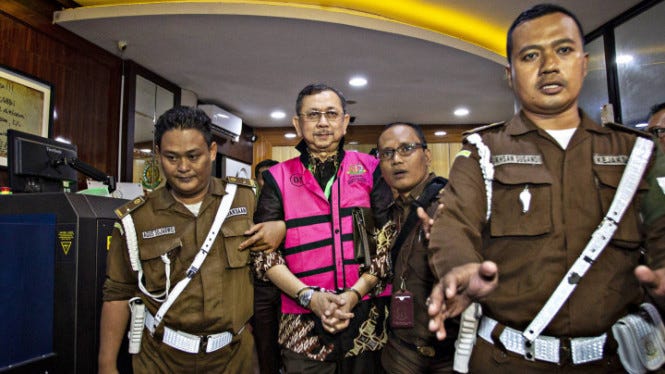Indonesia Insurance Sector Dangerously Close to Imploding
Trouble at two firms may signal wider problems for industry, government

The disaster suffered last week by two state-backed Indonesian insurance companies has its roots in a largely corrupt and unregulated financial sector dominated by Suharto-era tycoons who have lost millions of dollars through financial mismanagement, raising concerns that widespread insurance failures may follow.
Five suspects have been arrested in the …
Keep reading with a 7-day free trial
Subscribe to Asia Sentinel to keep reading this post and get 7 days of free access to the full post archives.

